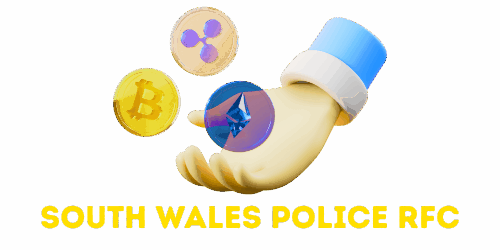In today’s fast-paced world, strong organizational skills are essential for success in both personal and professional spheres. These skills empower individuals to manage their time effectively, prioritize tasks, and streamline their daily activities. Whether juggling multiple projects at work or balancing family commitments, being organized can significantly reduce stress and increase productivity.
Mastering organizational skills not only enhances efficiency but also fosters a sense of control and clarity. By developing these skills, individuals can create systems that work for them, leading to better decision-making and improved outcomes. Embracing effective organizational strategies can transform chaos into order, making it easier to achieve goals and maintain a healthy work-life balance.
Table of Contents
ToggleImportance Of Organizational Skills
Organizational skills play a critical role in personal and professional success. These skills enable better time management, task prioritization, and stress reduction, all of which contribute to increased productivity.
Enhancing Productivity
Organizational skills enhance productivity by streamlining workflows and reducing wasted time. They allow individuals to create structured plans that prioritize high-impact tasks. For example, using to-do lists and calendars helps track deadlines and commitments, ensuring that crucial activities receive the focus they require. Teams benefit from organized project management tools, which clarify roles and responsibilities, leading to efficient collaboration.
Reducing Stress Levels
Organizational skills significantly reduce stress levels by providing clarity and control over responsibilities. When individuals know what tasks remain and their associated deadlines, they can approach their work with a sense of preparedness. Developing routines helps establish predictability in daily tasks, further alleviating anxiety. Keeping an organized workspace minimizes distractions, allowing individuals to maintain focus and execute tasks effectively, thereby lowering overall stress.
Types Of Organizational Skills

Organizational skills encompass various abilities that streamline processes and improve efficiency. Key types of organizational skills include time management and space management.
Time Management
Time management refers to the ability to effectively allocate time to tasks and activities. It includes techniques such as prioritizing tasks based on urgency and importance, setting deadlines, and breaking larger projects into manageable steps. Effective time management techniques include:
- Goal Setting: Establish specific, measurable, achievable, relevant, and time-bound (SMART) goals to guide daily activities.
- Scheduling: Create a daily or weekly schedule that outlines tasks and allocates specific times for completion.
- Prioritization: Use methods like the Eisenhower Matrix to differentiate between urgent and important tasks, allowing for focused efforts on high-priority items.
- Avoiding Procrastination: Implement strategies like the Pomodoro Technique, which involves working in focused bursts followed by short breaks to maintain productivity.
Space Management
Space management involves arranging physical and digital spaces to enhance efficiency and reduce clutter. Effective space management strategies include:
- Decluttering: Regularly remove unnecessary items from workspaces to free up space and improve focus.
- Organizational Systems: Use storage solutions like folders, file cabinets, and boxes to categorize and store items systematically, facilitating quick access.
- Workspace Design: Arrange workspaces ergonomically to promote comfort and enhance productivity.
- Digital Organization: Keep digital files organized through clear labeling, folder structures, and regular maintenance to ensure easy retrieval of information.
By focusing on time and space management, individuals can significantly boost their organizational abilities, leading to improved productivity and reduced stress.
Developing Organizational Skills
Developing strong organizational skills involves implementing specific strategies to enhance productivity and reduce stress. Individuals can cultivate these essential skills through effective goal setting and prioritization.
Setting Clear Goals
Setting clear goals provides direction and purpose. Goals should be specific, measurable, achievable, relevant, and time-bound (SMART). This approach assists individuals in breaking down larger objectives into manageable tasks, facilitating a step-by-step path toward success. For instance, instead of stating a vague intention to “get fit,” an individual might set a goal to “exercise for 30 minutes five days a week.” Regularly reviewing and adjusting goals ensures they remain aligned with personal or professional aspirations, enhancing motivation and focus.
Prioritizing Tasks
Prioritizing tasks allows individuals to allocate effort to the most impactful activities. Techniques such as the Eisenhower Matrix can help categorize tasks into four quadrants: urgent and important, important but not urgent, urgent but not important, and neither urgent nor important. Focusing on urgent and important tasks first maximizes productivity. Additionally, assessing deadlines and consequences helps in determining which tasks receive immediate attention. Maintaining a prioritized to-do list serves as a constant reminder of tasks according to their importance, promoting efficient time management and goal progression.
Tools And Techniques For Improving Organizational Skills
Using effective tools and techniques enhances organizational skills, promoting efficiency and productivity. Various digital and physical tools assist individuals in streamlining their processes and managing tasks effectively.
Digital Tools
Digital tools offer innovative solutions for enhancing organizational skills. These tools include:
- Task Management Software: Applications like Trello and Asana facilitate task tracking by allowing users to create, assign, and prioritize tasks while promoting collaboration within teams.
- Calendars: Digital calendars, such as Google Calendar and Outlook, enable users to schedule appointments, set reminders, and manage deadlines. Integration with other tools also helps maintain a centralized overview of commitments.
- Note-taking Applications: Tools like Evernote and Microsoft OneNote allow users to capture and organize notes seamlessly, ensuring important information remains accessible.
- Time Tracking Apps: Tools such as Toggl and Clockify enable users to monitor the time spent on various tasks, fostering awareness of productivity patterns and identifying areas for improvement.
Physical Tools
Physical tools play a significant role in improving organizational skills. These tools include:
- Planners and Notebooks: Traditional planners and notebooks enable users to jot down tasks and appointments, providing a tactile approach to organizing thoughts and responsibilities.
- File Organizers: File folders and document trays help keep physical documents sorted and easily retrievable, reducing clutter and enhancing workflow.
- Bulletin Boards: Bulletin boards assist individuals in visualizing tasks, reminders, and deadlines, promoting a clear understanding of priorities.
- Desk Organizers: Trays and containers help maintain an organized workspace, reducing distractions and facilitating focus during work hours.
Employing a combination of these tools fosters a systematic approach to organizational skills, leading to improved time management and productivity.
Mastering organizational skills is essential for anyone looking to enhance their productivity and reduce stress. By implementing effective strategies and utilizing the right tools, individuals can create a structured approach to managing their tasks and responsibilities. This not only leads to better time management but also fosters a sense of control over one’s work environment.
As people continue to refine their organizational abilities, they’ll find themselves better equipped to navigate challenges and achieve their goals. Embracing these skills can transform daily chaos into a more manageable and fulfilling routine, ultimately paving the way for both personal and professional success.








